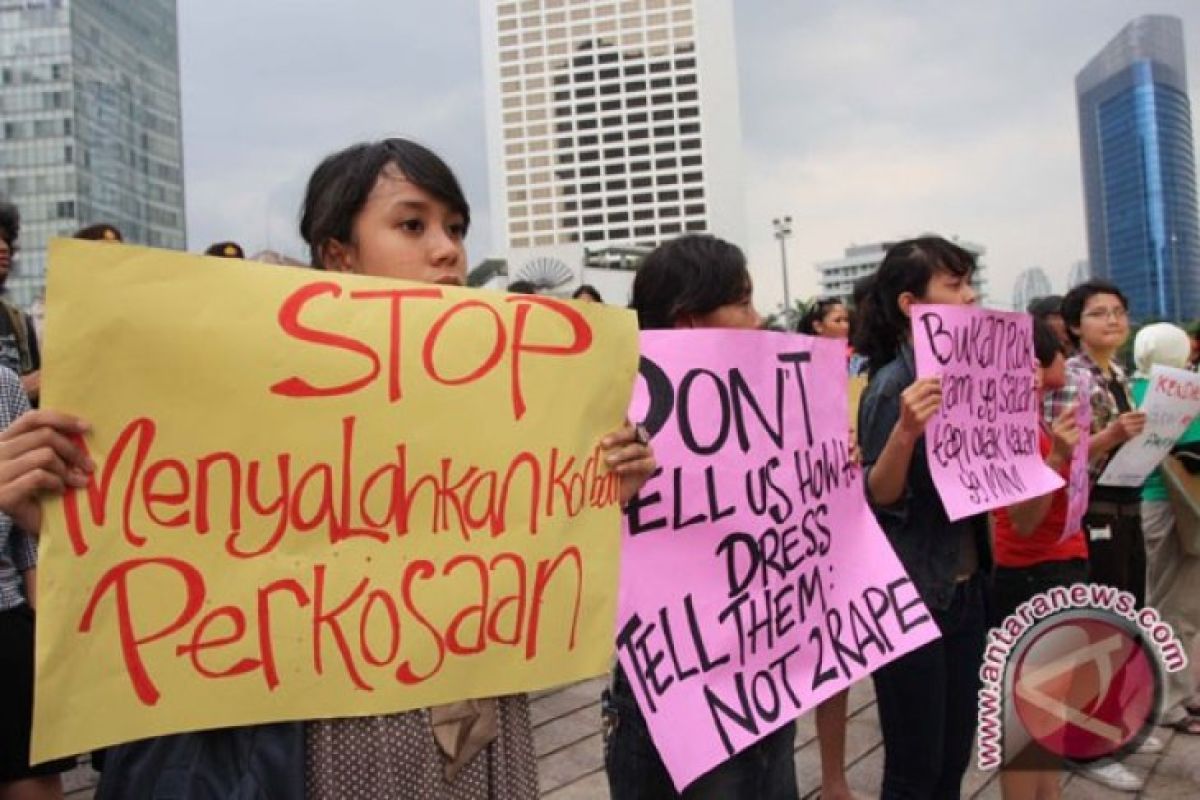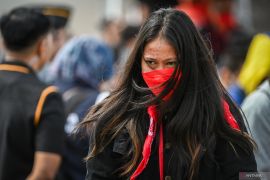Wirawan reportedly forced the students, some of whom even got pregnant and gave birth to babies, to perform menial jobs. He allegedly used the babies to invite unsuspecting benefactors to donate money to the school.
Wirawan’s actions may seem beyond comprehension, yet every act of rape is irrational and can never be justified.
Rapists are known to exploit unequal power relations and threaten their victims from reporting their ordeal to the authorities. Often, they compel victims to hide their suffering and not seek help from families, relatives, and neighbors.
According to experts, in most rape cases, the suspects are often the husband, teacher, manager, or people who are in some position of actual or presumed authority, or are physically more powerful.
Wirawan repeatedly told students to be obedient to teachers, no matter what the teacher does. The case only unraveled after a student's parent found her with a pregnancy test and filed a police case, on behalf of the student, against Wirawan.
Unfortunately, in many rape cases, police complaints are made by proxy as the victims are too frightened by the threats of the suspects to file a report on their own.
Related news: Ministry, KPAI, law enforcers probe sexual violence in schools
Law is yet to favor victims
As per the current legal code, rape suspects are charged under Article 285 of the national criminal code and if the rape victim is underage, then the child protection law is also applied. Under both laws, convicted rapists face 15 until 20 years of imprisonment.
Despite the national criminal code setting a harsh prison sentence for convicted rapists, the victims’ interests, including convenience in reporting rape and assurance of recovery assistance, are yet to be addressed by Indonesian law.
Apart from the lack of legal protection, rape victims who confront their own fears to come forward and report the crime to the police also need to brave prejudice and stigma, sometimes even from law enforcers who ask insensitive questions, attempt to shift the blame to them, or place the burden of proof on the victims, experts said.
Cases of unpleasant police treatment of rape victims have repeatedly surfaced, with one notable case reported recently in Riau province.
Upon receiving a complaint from a victim, identified as Z, aged 19, who was gang-raped by four suspects and lost her baby in the ordeal, two police officers in North Tambusai, Riau, instead threatened Z after she objected to how they were handling the case.
“Well, this must conclude by tomorrow. I will wait for you at 8 a.m. in my office, and if you are not there after 10 p.m., I will make you the suspect instead,” a police officer, in a threatening tone, reportedly told Z, warning her to cooperate with the police even though the solution they offered did not favor her.
After a recording of the encounter went viral on social media, the police officers were transferred to another unit for violating the code of conduct and Z received psychological assistance from the authorities.
Reviewing several sexual violence cases that first came to light from social media posts instead of from police investigations, and other cases of improper and insensitive police handling, no wonder residents have begun to question the effectiveness of the police force in handling sexual violence cases.
Moreover, we must understand that besides convicting rape suspects for their crime, victims’ rights for assured recovery and compensation are equally essential. The victim should not be left to seek a remedy for their physical and psychological duress on their own.
Related news: Progress of sexual violence prevention bill offers hope for victims
Sexual violence prevention bill urgent need
The sexual violence prevention bill has become an urgent requirement that must be supported by all parties, including the government, parliament, law enforcers, and members of the public, who claim to side with sexual violence victims.
After an intensive public campaign and compromise among parliament members, the House of Representatives' Legislative Body designated the sexual violence prevention bill as a legislature-initiated law on December 8, 2021, taking the one crucial step before the eventual ratification of the bill into law.
The bill, first proposed as the Sexual Violence Eradication Bill, has been repeatedly been included in the national legislation program, yet opposition from several members of the public and parliamentary parties who could not reach a compromise delayed the bill's progress, forcing the deliberation process to be continued to the next parliamentary term.
Among all parliamentary fractions represented in the legislature, seven parties have expressed their support to the final draft, while the Golkar Party faction has said that the bill's drafting process needs to be given more time, and the Prosperous Justice Party fraction has opposed the bill.
The National Commission of Violence Against Women has also expressed support for the bill since 2010. The organization had conceived the proposed bill draft in 2014, and submitted academic papers to support the bill to the parliament in 2016.
Members of the public have praised the provisions of the sexual violence prevention bill which, apart from enacting hefty sentences for rape suspects, also assure victims' rights, including the convenience of reporting, assistance in physical and psychological recovery, and other enumerated rights.
President Joko Widodo has responded positively to the progress made on the bill and has instructed ministries and institutions to coordinate for the swift passage of the bill.
The President's instruction culminated in the formation of the Sexual Violence Prevention Bill Advancement Task Force, led by Law and Human Rights Deputy Minister Edward Omar Sharif Hiariej, who reiterated his determination to push the bill till its ratification as law.
While the government and the parliament have lent their support for the bill, they must prove their commitment by passing the bill soon, because as long as the bill does not become law, women in Indonesia will have one layer less to protect themselves from sexual predators.
Related news: Religious Ministry devises strategy to prevent sexual violence
Related news: Violence against women up two-fold compared to 2020: commission
Translator: Genta Tenri M, Nabil Ihsan
Editor: Sri Haryati
Copyright © ANTARA 2021












